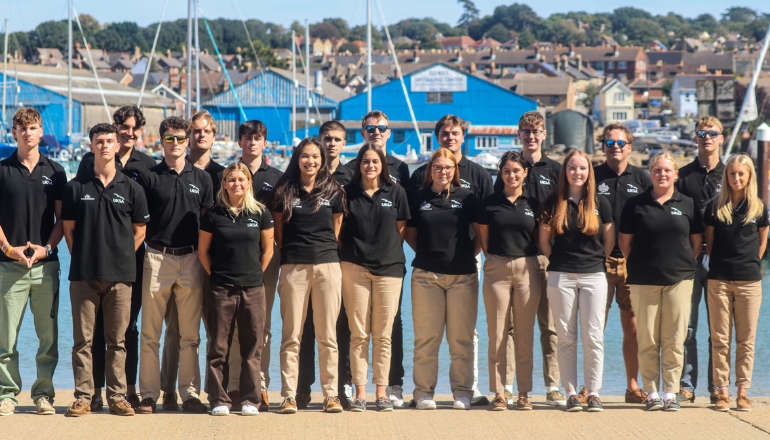
UKSA has announced 80 per cent of the September intake for its Superyacht Cadetship course are receiving funding in a move to ensure the maritime industry is accessible to as many young people as possible.
The Isle of Wight based charity, which provides life-enhancing water-based adventures, education and world-leading maritime training, has provided over half of the funding towards course fees - an average of £12,000 - enabling students from all backgrounds to take part in its flagship maritime training programme.
Available to those aged 18-25, the structured four-year programme which this year sees 42 students start in September, an increase of 13 per cent from the previous year, is designed to train the future officer of the superyacht industry and was created with the Maritime and Coastguard Agency (MCA).
It equips graduates with a strong foundation of knowledge, alongside offering a realistic understanding of what it takes to succeed in a career in the superyacht industry.
James Potipher, cadetship manager at UKSA, said:
“UKSA is incredibly proud to enable the funding of 80 per cent of our Superyacht Cadetship students thanks to our incredible sponsors with additional funding from the Noel Lister Memorial Fund, Milo Hanlon Fund, Stephen Thomas Bursary and the Will Black Fund.
“We are committed to making careers in maritime as accessible as possible and removing any barriers to those who wish to pursue a career in the industry is something we will continue to encourage and enable.
“This course is a fantastic alternative to university and uniquely, students earn while they learn so they can pay off their course fees while they’re working and training in the industry."
The course comprises five phases; phase one will see cadets developing skills and knowledge of seamanship and safety as well as industry qualifications.
Phase two sees students employed on a superyacht as an entry-level deckhand and phase three progresses cadets from a junior deckhand to more senior positions onboard such as lead deckhand or bosun by building on their working experience.
Phase four gives the cadets watch keeping experience in a paid employment role which will see them practically applying and honing the techniques and practices learned.
The final stage is the Officer of the Watch 3,000gt training with cadets studying senior modules towards a final examination.
For more information on UKSA and its maritime training for a career at sea, visit www.uksa.org.

 Free To Attend Wellbeing Event Confirmed For Shanklin
Free To Attend Wellbeing Event Confirmed For Shanklin
 Brighstone Christmas Tree Festival 2024 A Festive Success Despite the Weather
Brighstone Christmas Tree Festival 2024 A Festive Success Despite the Weather
 Monkton Arts Announces Ryde Gypsy Jazz Festival 2025
Monkton Arts Announces Ryde Gypsy Jazz Festival 2025
 Acclaimed Singer-Songwriter Polly Paulusma Announces Intimate Isle Of Wight Live Dates
Acclaimed Singer-Songwriter Polly Paulusma Announces Intimate Isle Of Wight Live Dates
 Students Promote Community Cohesion With New Art Installation At Newport Bus Station
Students Promote Community Cohesion With New Art Installation At Newport Bus Station
Comments
Add a comment